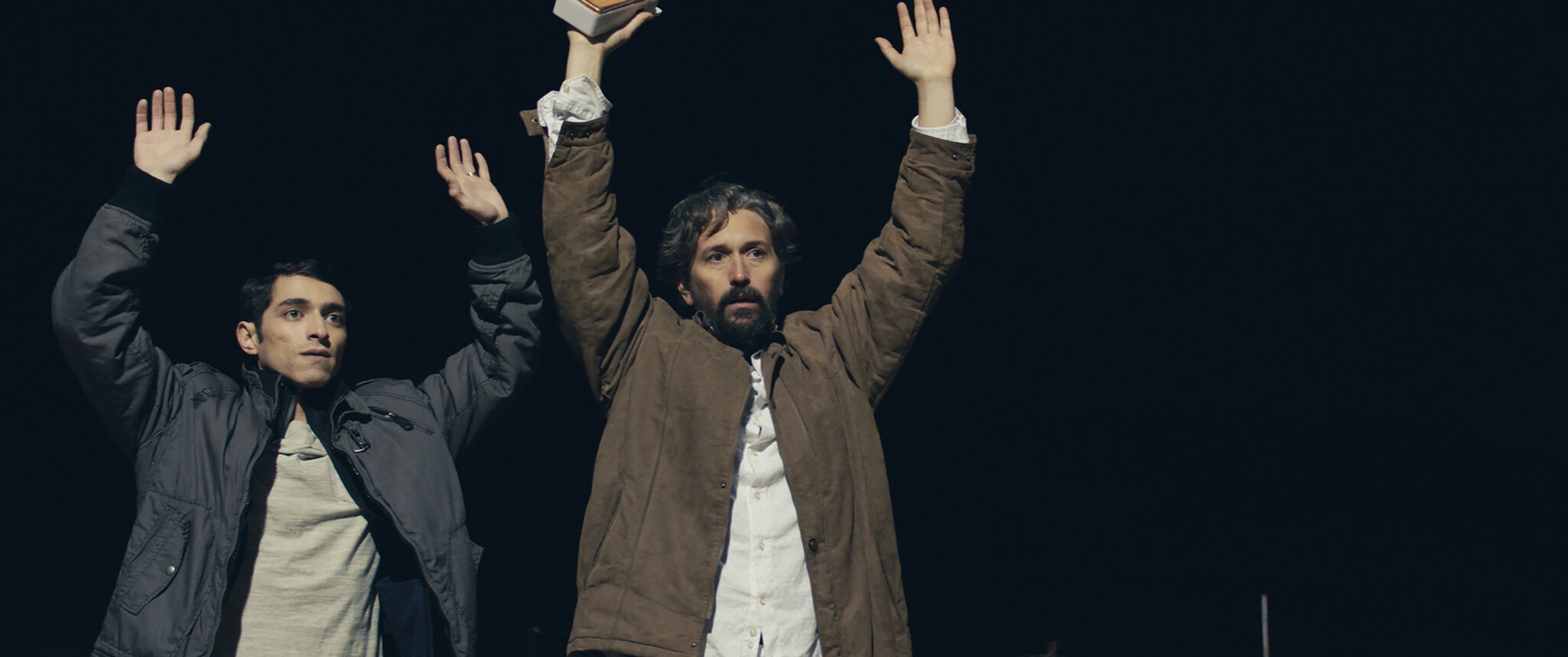Directed by: Eran Kolirin
Written by: Eran Kolirin, based on Sayed Kashua’s novel
Starring: Alex Bakri, Juna Suleiman, Salim Daw, Ehab Salami, Samer Bisharat, and Yara Elham Jarrar
Runtime: 101 minutes
‘Let It Be Morning’ offers important messages but not a lot of sunshine
“We gotta get out of this place if it’s the last thing we ever do.” – The Animals, 1965
The said lyric is exactly how Sami (Alex Bakri) feels. Sami, his wife Mira (Juna Suleiman), and his young son are trapped in purgatory. No, not in a religious netherworld due to past sins, but in a tangible place: his hometown.
While visiting this tiny, remote village to attend his brother Aziz’s (Samer Bisharat) wedding, a small band of military types blocks the one road in and out of town.
The one road!
Unfortunately, Sami, his wife, and his son face this manned obstruction after sundown when attempting to drive home to Jerusalem. They’re forced to turn around and head back to his parents’ house, spend the night, and hopefully, this unexpected inconvenience will subside in the morning.
Well, come morning, it…does not.
For an unknown swathe of time, Sami and his family are stuck in this isolated community, and no one can – definitively - circle a date on the calendar when the roadway will open again.
Writer/director Eran Kolirin’s “Let It Be Morning” was released in 2021, and the film became Israel’s Best International Feature submission for the 2022 Academy Awards. It didn’t land on the Oscar shortlist, but Kolirin’s movie does offer an anthropological study over its 101-minute runtime.
This unnamed parish is primarily an Arab-populated community, one located in Israel. So, tensions are built into the narrative. However, the script – based on Sayed Kashua’s 2006 novel – does not delve into massive combative tactics between Jewish and Arab populaces. Some mentions of the ever-present geo-political, religious, and cultural differences occur, and yes, the road is blocked, an obvious point of contention. Still, the film’s messages pertain to a couple of universal aspects of human nature, whether the movie is set in Phoenix, Shanghai, Sydney, Nairobi, Buenos Aires, or Jerusalem.
Granted, the given municipality isn’t one of the planet’s largest commerce centers. Here, “everyone” knows Sami’s name, and the movie touches upon family conflicts, but not in a cliché-driven sense. Disagreements are presented and explored as a matter of fact.
Rather than showcase screaming matches and verbal outbursts – that we might expect from forced, paint-by-numbers American dramedies where extended families are cooped up in a home over the holidays (see also, “The Family Stone” (2005)) – general apathy is the “winning” emotion of the day in “Let It Be Morning”.
Living with regret is a common theme with the inhabitants and visitors in this anonymous settlement. Will anyone break free? Break free of their invisible chains, as songwriter/drummer Neil Peart famously called the emotional reasons for remaining in unwanted life circumstances.
In most (but certainly, not all) cases, listless tones and the characters’ general indifferences carry the production, and the motion picture’s deliberate lingering pace can create struggles for moviegoers. Subdued and isolated discourse repeatedly transpires within quiet rooms or on empty street corners as Sami trudges through his given, forced circumstances. Occasionally, words of wisdom resonate with him and us, especially from Sami’s mom and his childhood friend Abed (Ehab Salami), but we wade through lengthy, dreary stretches to get to these Promised Land exchanges.
Meanwhile, sad-sack Sami carries an everyman suburban white-collar worker’s fate. The man has it all but doesn’t appreciate his blessings, including Mira, whom he sadly neglects.
Don’t cry over “Let It Be Morning”. It’s not an invaluable time at the movies. Still, the film is deliberately downtrodden as broken dreams aren’t forgotten, and disappointments forge an ever-present malaise. Some moments of levity temporarily raise spirits, but not often enough to consider this cinematic adaptation a comedy.
In addition to the last scene, a moment that stuck most with this critic is when Sami’s household-triad briefly steps away from the urban center, as Kolirin captures lovely rocky hills and buttes, complete with olive trees, fresh air, and the chance at new beginnings. The scene makes one appreciate the natural beauty of the region. Perhaps “getting out of this place” shouldn’t be a ubiquitous proclamation.
Jeff’s ranking
2/4 stars














